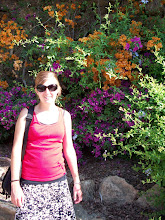The first thing that in the series is an audio slideshow about the relationship between America and Africa over oil. I wasn't able to upload it to the blog, but it is interesting.
 The second item in the series is an article about oil spills in Nigeria. The article is really interesting and tells the story of the people effected by the spills. It also has a some interesting charts that show where Nigeria stands in the production of oil. According to the chart, Canada is the top producer and Nigeria is 5th, under Mexico, Venezuela, and Saudi Arabia.
The second item in the series is an article about oil spills in Nigeria. The article is really interesting and tells the story of the people effected by the spills. It also has a some interesting charts that show where Nigeria stands in the production of oil. According to the chart, Canada is the top producer and Nigeria is 5th, under Mexico, Venezuela, and Saudi Arabia.  The third part of the series is an article about how profitable oil is in the Congo and begins with this picture about the fisherman in the Congo. It is interesting to see how this article connects to what we talked about in class today. The Congolese government actually made money from this deal even though the oil was being sent to the United States. It would be interesting to find out more about the oil policies in different countries and how they differ. Maybe the Congo has a better policy than Nigeria....
The third part of the series is an article about how profitable oil is in the Congo and begins with this picture about the fisherman in the Congo. It is interesting to see how this article connects to what we talked about in class today. The Congolese government actually made money from this deal even though the oil was being sent to the United States. It would be interesting to find out more about the oil policies in different countries and how they differ. Maybe the Congo has a better policy than Nigeria.... The final article listed in the series is about Angola. Like much of what we have talked about in class, the article talks about how the people in Angola are not benefitting from the oil wealth. Instead it says that there is a legacy of war and corruption that should not be there. This would be another interesting read.




